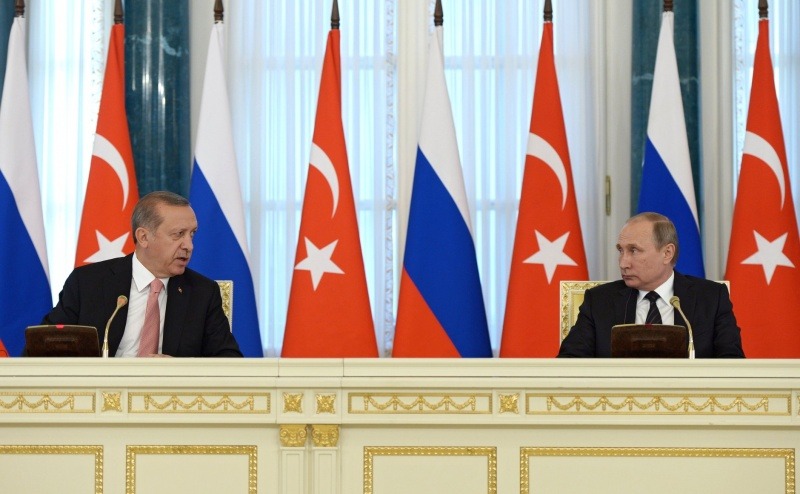
In February 2019, the Timbro Authoritarian Populism Index (TAP) published its latest findings revealing a series of alarming predictions for the coming state of Europe.
Based on data collated since 1980 on 267 parties and 33 countries, the TAP remains the most comprehensive means of monitoring the rise of authoritarianism across the European Union. Its purpose had been to help policymakers and analysts keep a close eye on political trends as an early warning sign of authoritarian outbreaks – and as a barrier toward repeating the mistakes of the past.
While the image painted by the latest TAP findings is nowhere near as grim as the predictions presented by political experts, it still helps bring current trends developed by the voting E.U. public into focus, with a minimal amount of clutter.
In total, right-wing authoritarian parties appear to have grown at least 33% compared to 2018, with at least 26% of voters supporting them across the Union. Currently almost every government in the E.U. is either run by or relies on populists for support.
On the other hand, left-wing populist and liberal parties appear to be stagnating at a steady pace, only enjoying support from a vocal minority of voters – a total of 1.3%. While the voting public has veered hard away from extremist groups on either end of the spectrum, leaving room for more moderate and diverse voices, the lean has become more pronounced than ever with the entire European bloc seemingly on the verge of switching to a single political viewpoint for the foreseeable future.
At the top of the populist heap we find Greece, Hungary and Italy as the countries that could be the major players driving this change. A perfect political storm seems to be looming on the horizon.
The Primer: Angela Merkel Resigning From the CDU
In late 2018, following a series of political setbacks in Germany, Angela Merkel announced her intention to step down as chancellor in 2021, effectively giving up on her leadership position with the CDU. According to her statement, Merkel said:
“As chancellor and leader of the CDU I'm politically responsible for everything, for successes and for failures…when people are telling us what they think of how the government was formed and what they think of our work during the first seven months of this parliament... then it is a clear signal that things can't carry on as they are.”
At this time, the German CDU only appears to have the support of 27% of the German voting public – the result of voter backlash following a series of failed policies, chief among them (according to the party's detractors) their lax policy regarding immigration in light of the humanitarian refugee crisis.
By all accounts, and despite the buzz over who will succeed Merkel, it is clear both that the CDU may not survive the shift and that the parties intending to step into its shoes, such as the Green Party, are ill prepared for the current political climate.
With Germany having been the force driving the political climate within the European Union, it is obvious that the wheels for change have been set in motion.
The Charge: Italy and Hungary’s Plans for a Conservative Alliance
Following statements by Jan Zahradil, president of the Alliance of Conservatives and Reformists in Europe (ACRE), the Italian populist party Fratelli D’Italia (FDI) intends to lead the charge in allowing conservative elements in Europe to disassociate from the Union and form their own, independent coalition.
Gorgia Meloni, political leader of the FDI, said in a recent interview with ACRE’s new bi-weekly newspaper, The Conservative: “We will work with all the conservative groups to bridge the divide between the EPP centre-right parties and the populists, thereby relegating the left and Macron to the sidelines of European politics.”
The FDI is set to join the European Conservative and Reformist (ECR) group following the next European Parliamentary election in May, and is more than willing to welcome Hungarian Prime Minister Victor Orban’s Fidesz Party, which has been shunned by even the Christian Democratic parties of the European People’s Party (EPP) coalition within the European Parliament.
Orban seems to have worn out his welcome following a persistent line of attack on the migration policies set by the European Union, calling them a joint Juncker-Soros plot. According to a tweet from the European Commission: “The Hungarian government campaign distorts the truth and seeks to paint a dark picture of a secret plot to drive more migration to Europe. There is no conspiracy.”
The ECR’s willingness to include this type of rhetoric in its midst isn't indicative of any marginalized movement held up by a handful of stereotypically anti-social right-wing extremists. Instead, it represents a widely supported movement backed by voters from all walks of life who have begun to see Euroscepticism as a viable solution to the failing policies set up by the European Commission and Parliament.
And as the political situation becomes more heated, all it may take is a spark before truly explosive changes begin to take place. Greece seems to be more than ready to provide it.
Ticking Down: Greece Banks to the Right
Greece’s political and economic situation has almost been a contained microcosm of the larger failure of the E.U.: from the financial meltdown following the 2008 crisis to a series of poorly implemented reforms and the mishandling of the immigrant crisis, the country’s left-leaning Syriza Party represented a clear attempt to break away from the disastrous bipartisan policies that helped get it into its predicament.
But despite its promises, and after a considerably rocky start in 2015, Syriza took the reins of the country and largely failed to rise to the occasion. It kept sliding back into the failures of the past, supporting a bloated and unworkable government sector, and though 2018 was the year Greece officially got out from under the thumb of the IMF, its failure to deliver has made the Syriza administration an argument in favor of the ascendant European Right.
According to a tweet by Manfred Weber, head of the EPP, referring to the right-wing Greek candidate Kyriakos Mitsotakis and his Nea Dimokratia Party: "In Greece with my friend @kmitsotakis of @neadimokratia to discuss our common economic challenges. Populists on the left and right don’t create jobs, they destroy them. We have a plan for investment and innovation that will give people perspective again.”
With both Greek and E.U. parliamentary elections looming, Syriza appears set for a hard fall, with its position diminished in the E.U. as well– and Prime Minister Alexis Tsipras’s administration playing the role of scapegoat fueling the meteoric rise of the Greek (and subsequently European) Right.
The Aftermath of 2019
While predictions show the right will make considerable headway in the coming EU parliamentary elections, the far right doesn't appear to be in the lead. Despite the ECR’s willingness to embrace Orban’s often outrageous views, and the FDI’s hard anti-immigration and Eurosceptic line, complemented by Greece’s heavy lean with the EPP, it seems the European Union may well survive this moment even if its immediate future appears rocky at best.
While the resistance to the right-most aspects of the new Parliament will certainly not come from the liberal or extreme left, it is obvious the E.U. will take a sharp turn toward uncharted and strange territory. Perhaps, once again, it will be up to the American Left to show Europe the way toward a workable solution and out of its current predicament.
















